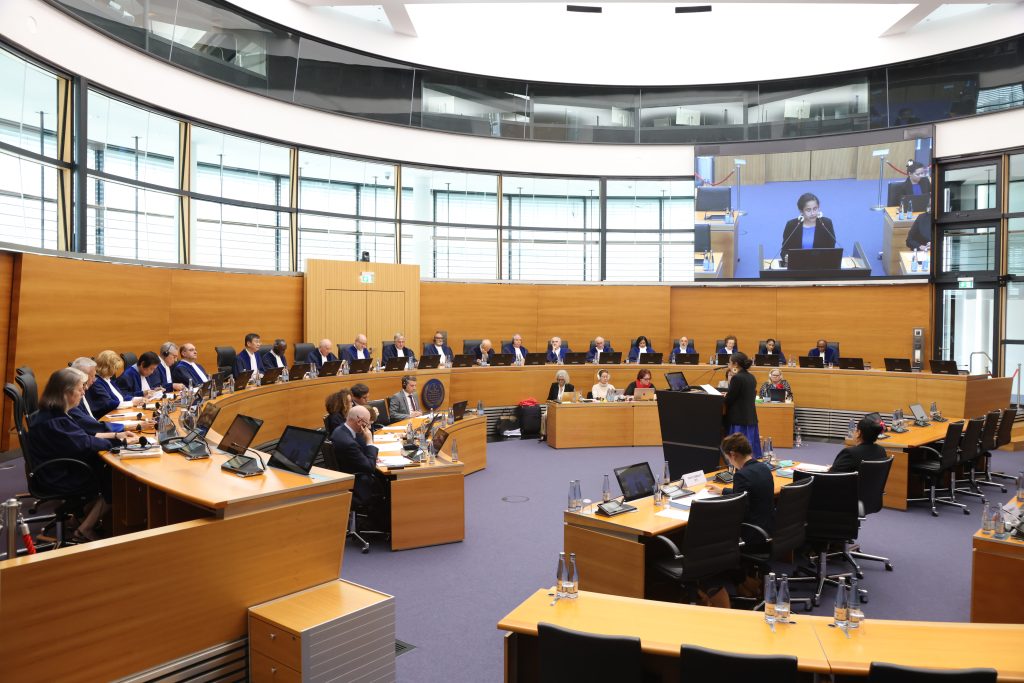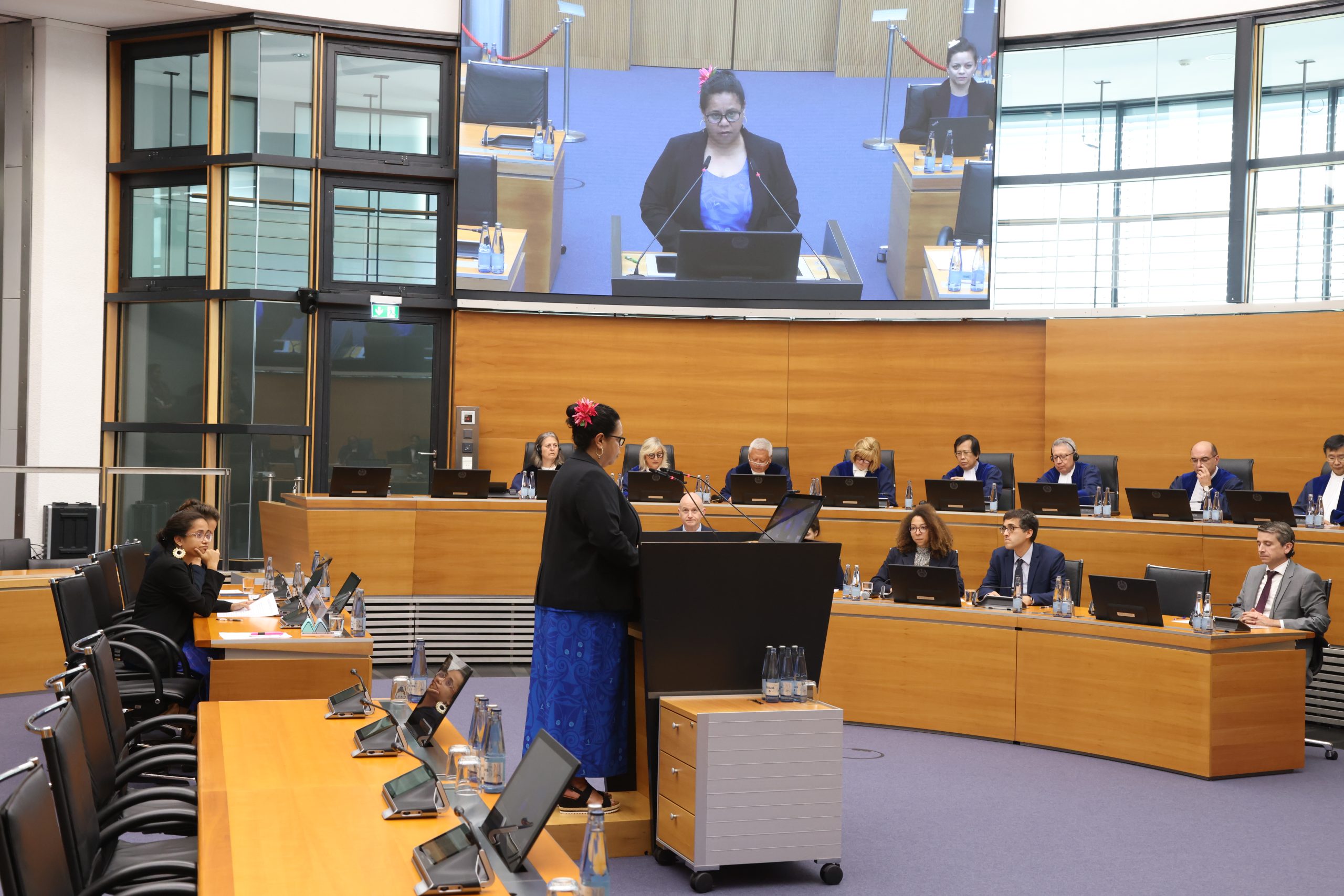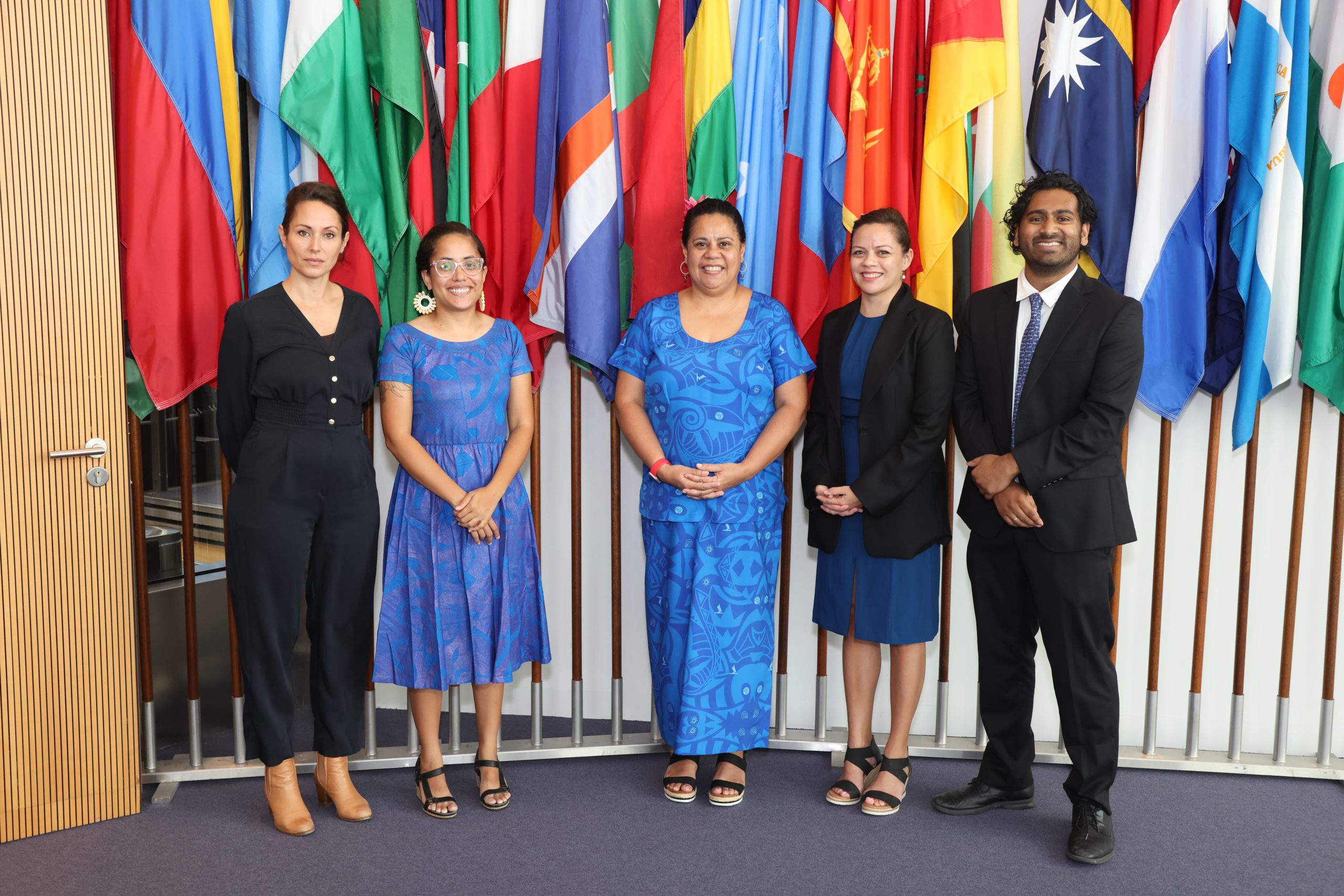The Pacific Community (SPC) presented compelling science to the International Tribunal for the Law of the Sea (ITLOS) today that shows the existential threat climate change is having on the marine environments of Pacific communities which is predicted to continue if rapid decarbonisation and greenhouse gas emissions are not urgently curbed.
The SPC Statement was co-presented by the Republic of the Marshall Islands Climate Change Envoy Kathy Jetnil-Kijiner and Director of SPC’s Geoscience, Energy and Maritime Division Rhonda Robinson in Hamburg, Germany in front of the 21 judges of the ITLOS Tribunal.
This representation is a critical step towards ensuring the best available science and information is informing the decision-making on the realities Pacific communities are facing which was emphasised by Jetnil-Kijiner.
“If we do not act with sufficient urgency and ambition within this decade, within these next seven years our people will suffer for thousands of years.”

Jetnil-Kijiner also emphasised the need to listen to the science and realities of communities on the ground noting that Marshallese communities are already facing the impacts of climate change on their homes and families.
“This causes violence to our innate connection to the marine environment on which our culture and livelihoods rely, that is why we need the global community to act not just for us but for our entire planet as we may be one of the first countries witnessing these impacts, but we won’t be the last.”
SPC’s Director Robinson spoke to the science on ocean warning, acidification and what the predicted sea level rise impacts are as a result of greenhouse gas emissions and their impact.
“Coastal communities in the Pacific have been significantly affected by the range of ocean related climate impacts. Where most of the population live on low lying coastal lands. The impacts of sea level rise have forced many communities to abandon their ancestral lands and relocate to safer areas. Often resulting in the loss of traditional food sources, cultural heritage, identity, practices, traditional knowledge, social cohesion as well as economic stability and security.”

She emphasised, “Displacement of these communities poses significant human rights challenges. We consider that an appropriate response to this threat can only be achieved if the experience of those who are the most impacted are given voice and prominence to inform of the realities on the ground thus soliciting the necessary urgent action. The prioritisation of these populations is critical. “
The ITLOS oral statements will continue until Friday 25 September 2023. The opinion is expected in the coming months and will be instrumental for Pacific countries in their work towards presenting a case at the International Court of Justice in 2024.
Pacific engagement in this work was supported by the Commission of Small Island States on Climate Change and International Law (COSIS) and other Pacific Members.
SPC was the only organisation from the Pacific requested by ITLOS to present an oral statement as part of the Tribunal’s proceedings which will end in the handing down of an advisory opinion on state obligations to protect and preserve the marine environment. This work was done upon the request of Pacific Member states to present objective science to show the existing and future impacts of climate change, ocean acidification, ocean warming and sea level rise on SPC’s member states.
SOURCE: SPC/PACNEWS














